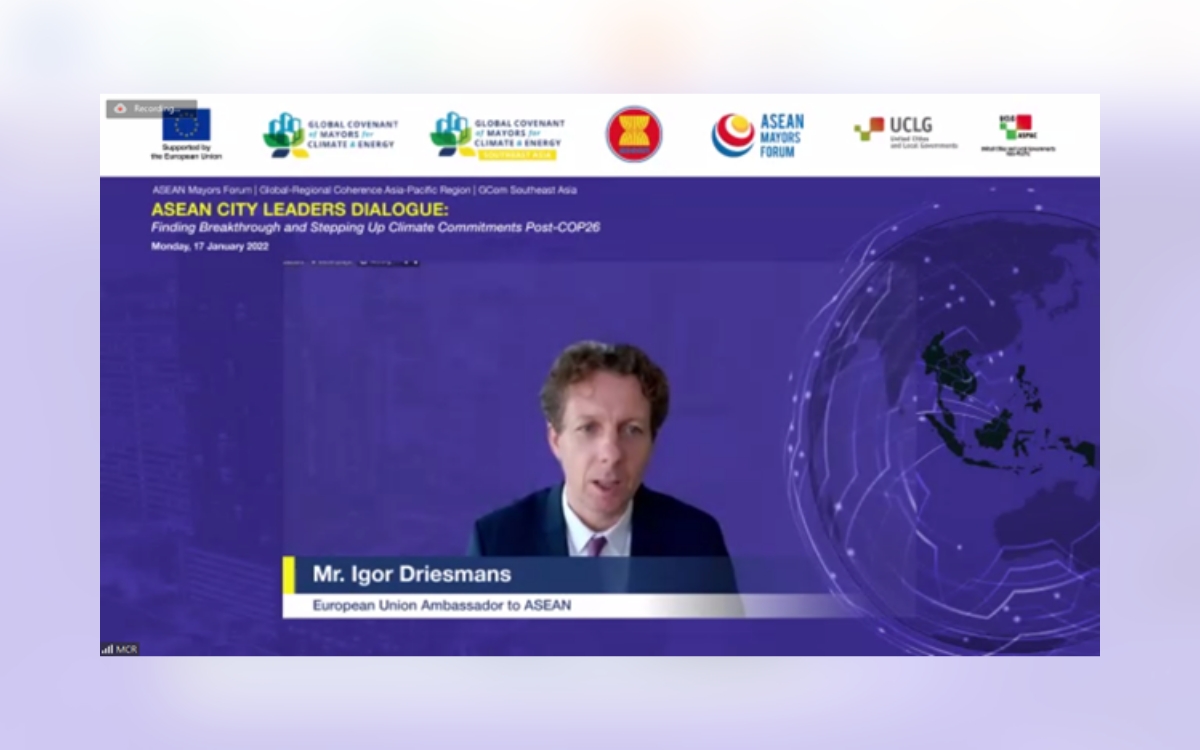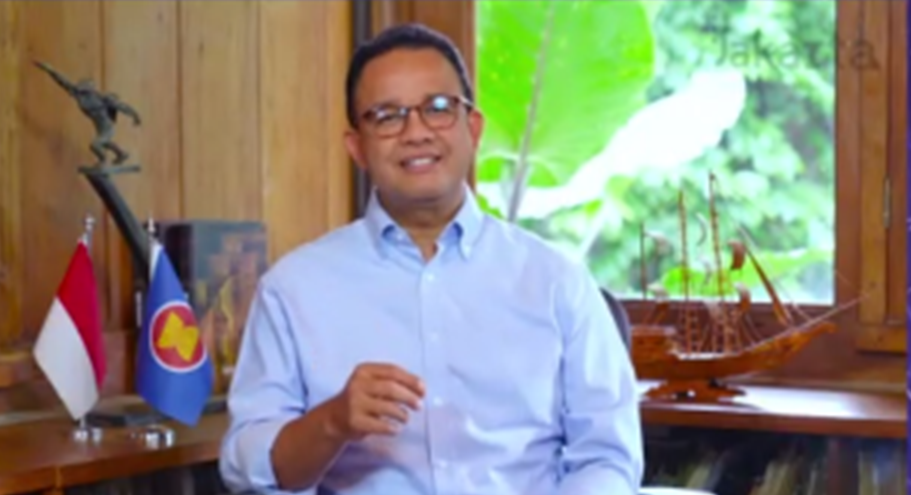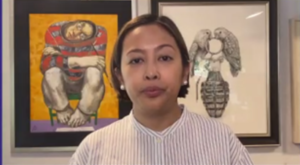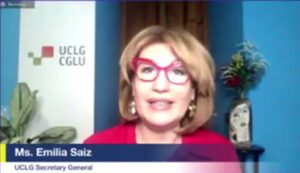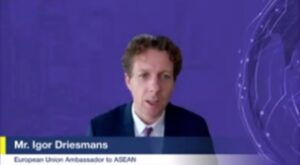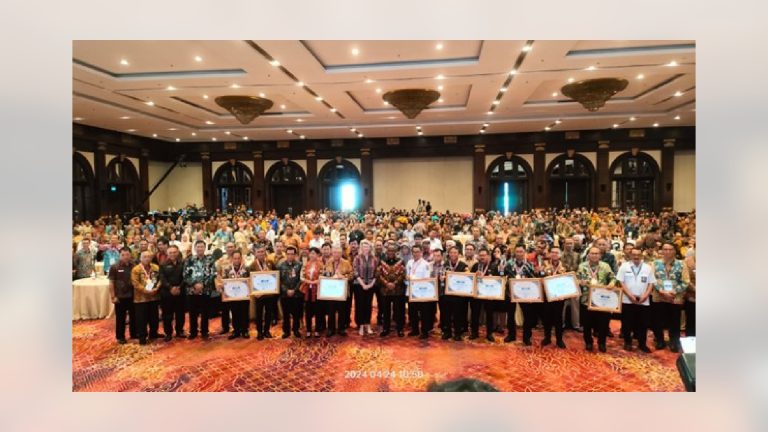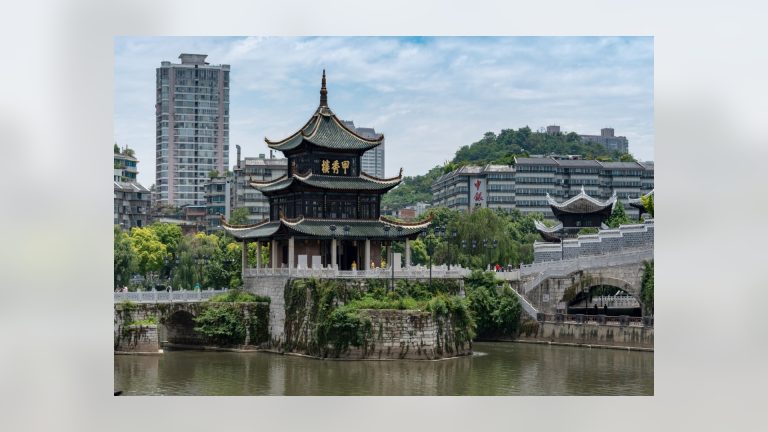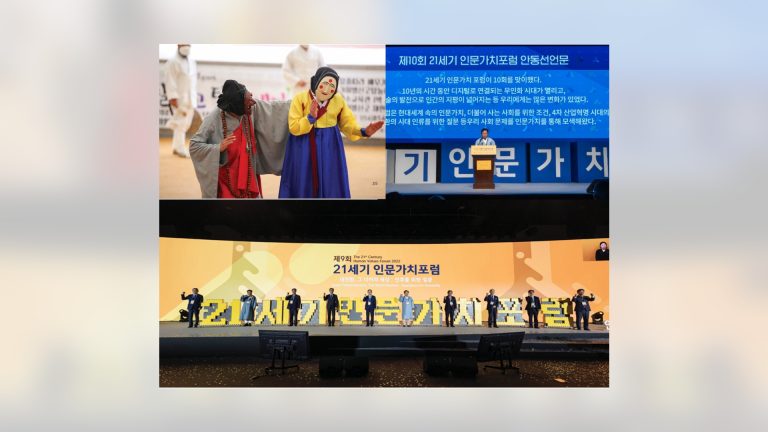17 January 2022 | UCLG ASPAC, playing its role as the Secretariat of Global Covenant of Mayors for Southeast Asia (GCoM SEA), summoned city leaders to synchronise actions in response to the result of The United Nations Climate Change Conference of the Parties (COP) 26. With the strong call to securing global net zero and keeping 1.5 degrees in reach, UCLG ASPAC saw the importance of pulling together actions to ensure efficient and valuable contribution to the shared goal. As the host of the ASEAN Mayors Forum (AMF); a local government network accredited by ASEAN; UCLG ASPAC enhanced the collaboration spirit of city leaders in Southeast Asia with insights from our regional and global network to ensure actions are taken in harmony. Taking up the momentum of level-up commitment and actions, UCLG ASPAC showcased the pledge made by cities from Indonesia, Malaysia, Thailand, and Viet Nam to become GCoM pilot cities in responding to the climate challenge in their respective area. This event presented insights from Mayors/ Governors and distinguished speakers.
Mr. Anies Rasyid Baswedan (DKI Jakarta Governor, Co-President of UCLG ASPAC, Vice Chair of C40 Steering Committee) said, “The emergency alarm has been ringing, it’s our role as city leaders to create livable cities.”
Ms. Mar-len Abigail Sombillo Binay (Mayor of Makati City, GCoM Board Member for Southeast Asia) mentioned that “It is now a decade of deliveries, and not just promises.”
Dr. Bernadia Irawati Tjandradewi (Secretary General of UCLG ASPAC/AMF/GCoM SEA) mentioned that the importance of climate action is making action; not only increase awareness, but also foster collaboration and partnership.
Mr. Andy Deacon (Acting Managing Director GCoM) said that local governments are best partners for climate action.
Ms. Emilia Saiz (UCLG Secretary General) mentioned that “We are the generation that can make a big impact for the needs of the next generations. Finding a “breakthrough” for climate action is so important to realise the results of COP26.”
Mr. Igor Driesmans (European Union Ambassador to ASEAN) said that national policies can be improved at local level, such as when local governments can embrace the digitalisation of city planning, which can encourage more critical thinking in city planning (with cloud services, etc.)
In the Mayor’s Dialogue session, city leaders within the Southeast Asia region shared their good practices in facing climate challenges. Efforts taken were varied, from utilising digital transformation programme to monitor weather and environment (Baguio City, Philippines), planting trees (Iriga City, Philippines), improving the drinking water provision system (Gorontalo City, Indonesia), public engagement to encourage participation from citizens (Makassar City, Indonesia), increasing green open spaces (Pontianak City, Indonesia), infrastructure improvement (Phuket City, Thailand), and programme implementation (Can Tho, Viet Nam).
Whilst in the Panel Discussion, our global network shared their insights.
Mr. Jean Baptiste Buffet (Senior Advocacy Officer, UCLG World Secretariat) mentioned that the Paris Agreement is the assessment base of the local and regional government to move, act, and react by putting the environment as the priority.
Mr. Andy Deacon (Acting Managing Director of GCoM) put emphasis on the importance of synchronised action saying that more than half of GCoM signatories are going further and faster and it is important to make sure other cities are moving in the same direction.
Mr. Curt Carrigan (Chief of Sustainable Urban Development Section, UNESCAP) also introduced the priority (of UN ESCAP) is to promote localised and collaborative low-carbon cities, urban development planning (there is still rapid urbanisation in ASEAN), and climate-sensitive action planning (Emission reduction).
Ms. Asma Jhina (City Resilience and Climate Finance Advisor of GCoM) said that City Climate Finance Gap Fund is the solution for cities with technical assistance, including capacity building.
The ASEAN City Leaders Dialogue concluded with the signing ceremony of GCoM Pilot Cities from four countries (Indonesia, Viet Nam, Thailand, Malaysia), officially marking the beginning of the GCoM SEA implementation programme. Positive hopes were expressed by pilot cities from four countries signaling the enthusiasm to achieve shared goal in respective region.
Closing the event, UCLG ASPAC Secretary-General, Dr. Bernardia Irawati Tjandradewi congratulated the commitment that cities made and reiterated the homework that each city has saying “this does not mean our climate commitment has reached a plateau. There is still much to improve and advocate for. In the end, we still have a lot of work to do.”
By KM Team








